During his PhD fieldwork in Kenya, IDOS researcher Dennis Schüpf explored climate change impacts in Kilifi County. In collaboration with the NGO One Million Trees for Kilifi and various community stakeholders, he launched an exhibition to share his findings with a broader audience.
 The PhD fieldwork of Dennis Schüpf, conducted in the context of the BMZ funded Klimalog project, focussed on the localised impacts of climate change in Kilifi County, where environmental changes are intricately linked to human activities such as sand mining, industrial fishing, and tourism development.
The PhD fieldwork of Dennis Schüpf, conducted in the context of the BMZ funded Klimalog project, focussed on the localised impacts of climate change in Kilifi County, where environmental changes are intricately linked to human activities such as sand mining, industrial fishing, and tourism development.
On 11 March 2025, the exhibition opened at the National Museum of Kenya in Malindi, featuring five large posters that combine captivating photography and research findings in both Swahili and English. The exhibition aims to make complex climate change issues accessible to local communities, raising awareness about environmental challenges and their root causes.
A key focus of the exhibition is the discussion around mangrove use for timber and the environmental consequences of burning trees for charcoal production. These pressing issues were further explored in a workshop following the exhibition launch, where community members engaged in meaningful dialogue about sustainable practices and the importance of local ecosystems.
In addition to addressing local environmental concerns, the exhibition also connects the local situation to global climate justice. It highlights the historical responsibility of industrialised nations, particularly Germany, in contributing to climate change and calls for accountability in the pursuit of global climate justice. By merging local knowledge with global perspectives, this exhibition is not only a celebration of community efforts but also a step towards fostering deeper understanding and collaboration in tackling climate change challenges.



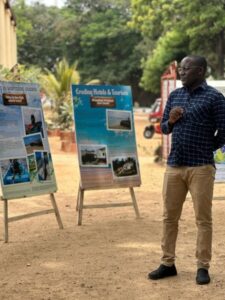
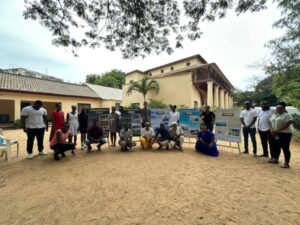
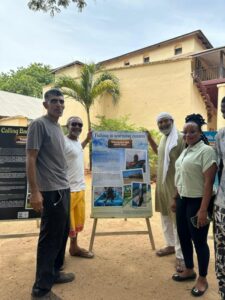

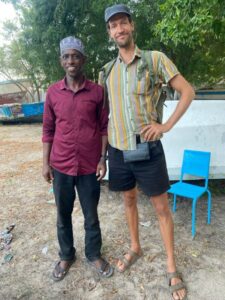
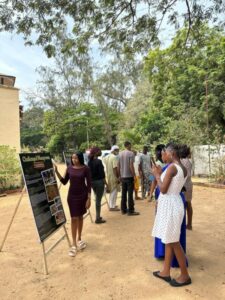
Schreibe einen Kommentar